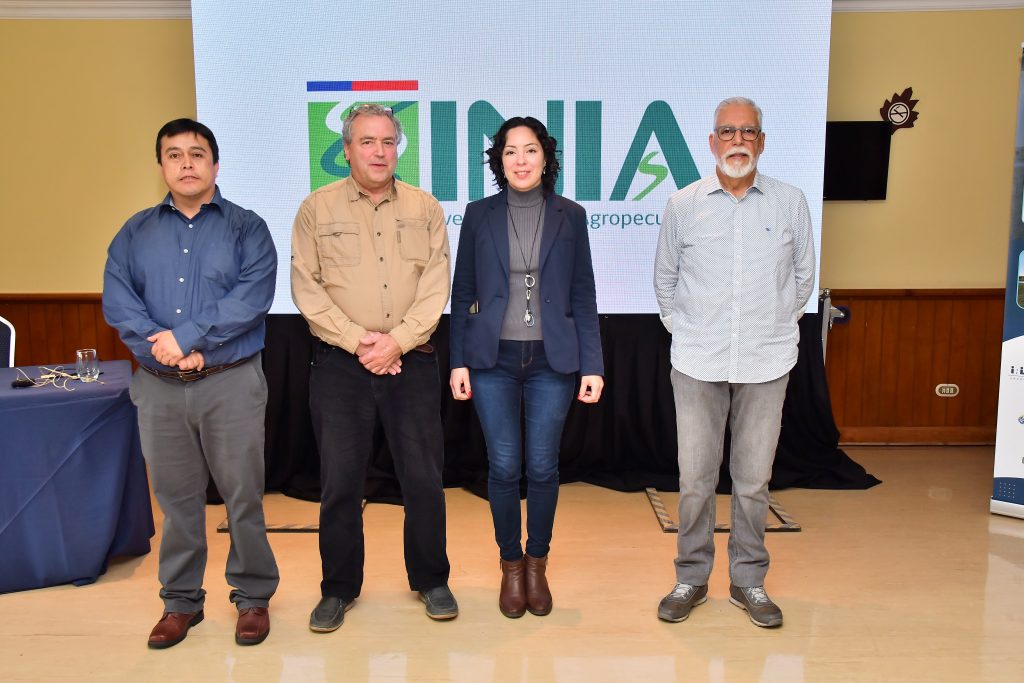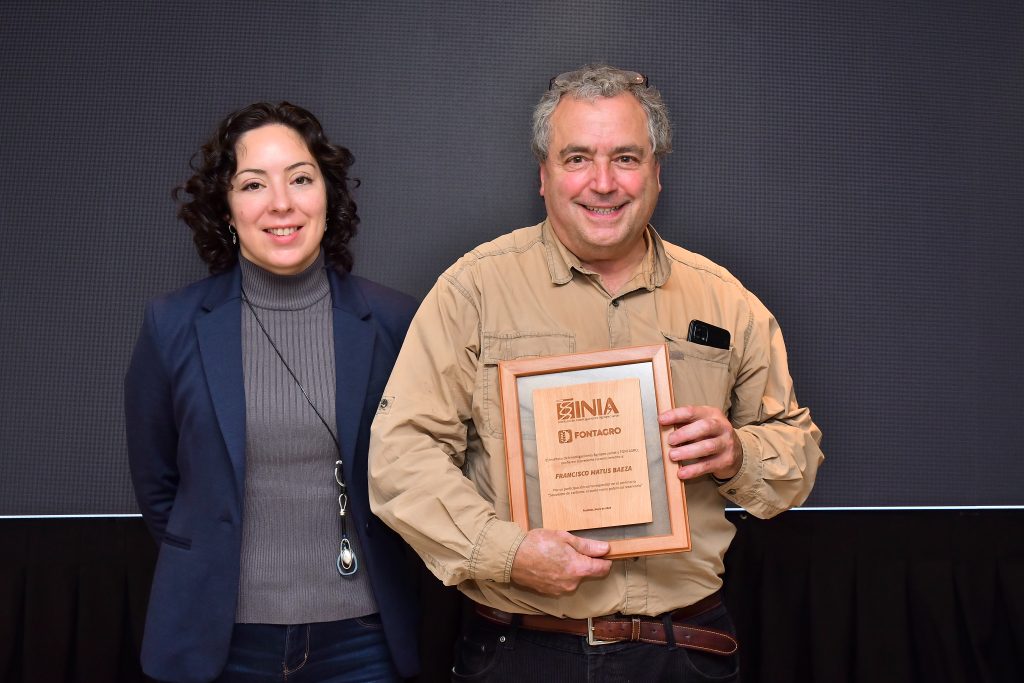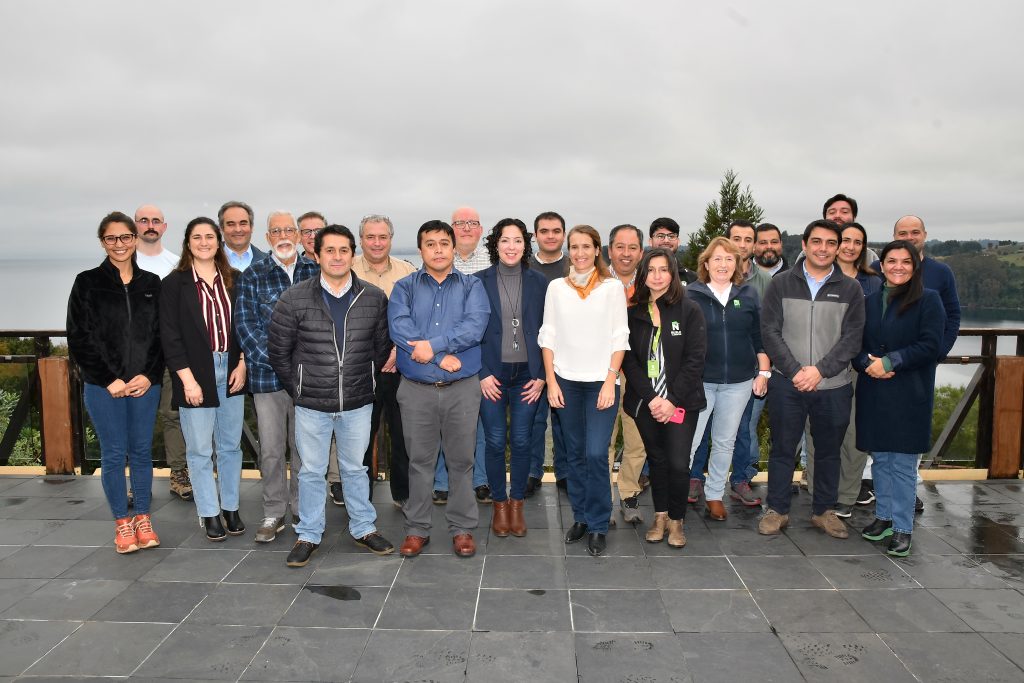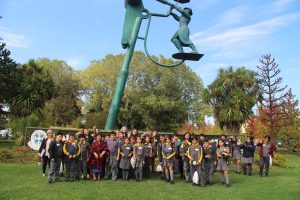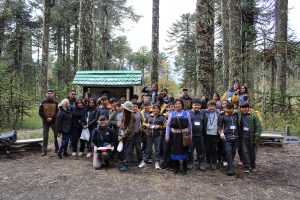Within the framework of the seminar organized by the Institute for Agricultural Research (INIA) of Chile, scientists from Latin America and the Caribbean studied new methods to estimate carbon sequestration in agricultural soils.
The activity was carried out on May 11 and 12 in Frutillar, Los Lagos Region, which was divided into a workshop and a seminar aimed at developing capacities to determine soil organic carbon stocks using NIRS spectroscopy, all of this as part of the FONTAGRO project.
The seminar began with an official welcome by the regional director of INIA Remehue, Natalie Urrutia, who stated that “as a country and as an institution we are participating as co-executors of this project, which is led by INIA of Uruguay. On the first day, workshops were held among project participants and today a seminar was held open to the agricultural community in which topics related to techniques and soil management to improve organic carbon sequestration were discussed.
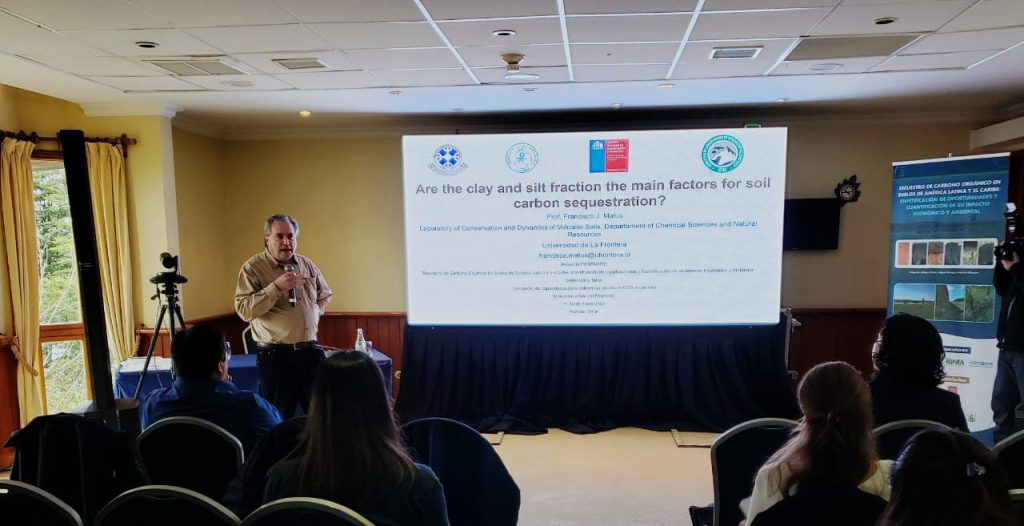
During the conference, Professor Francisco Matus, director of the Volcanic Soil Conservation and Dynamics Laboratory., gave the talk entitled Are the clay and silt fractions the main factors for the accumulation of carbon in the soil?, Prof. Matus mentioned that: “we think that soils can be a sink for excess carbon in the atmosphere and they provide a service as a nature-based solution by sequestering large amounts of carbon. Until today the soils have lost between 40 and 50% of their carbon, therefore, we have a space to recover it through agricultural management”.
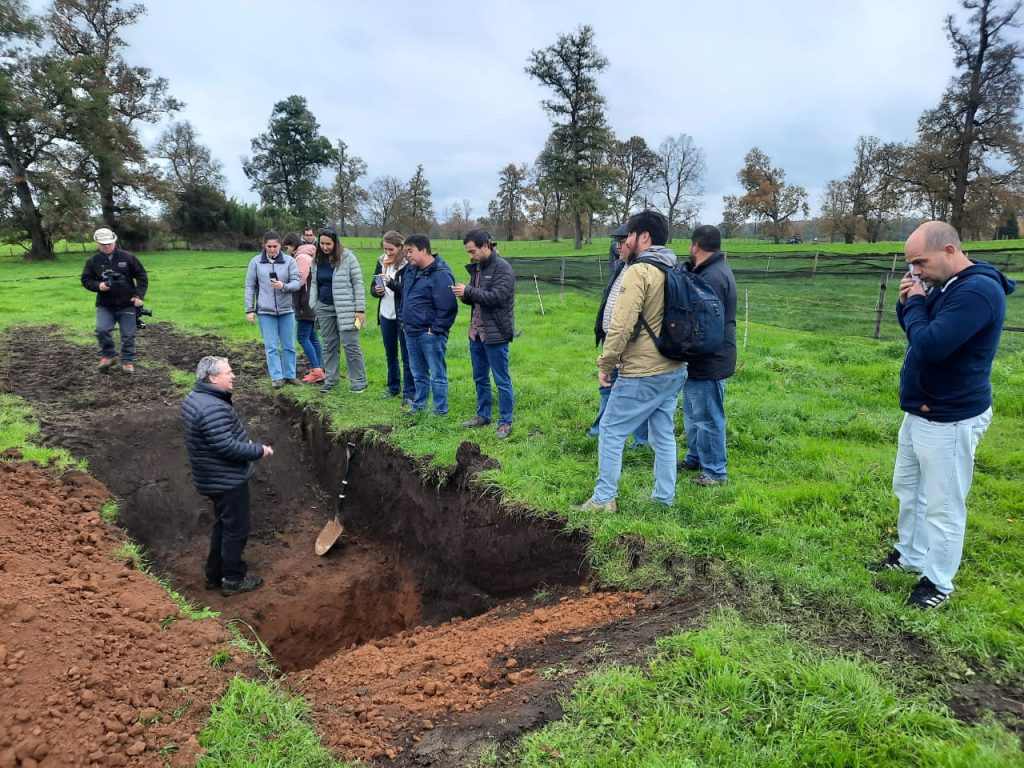
Among the activities, the scientists visited the Puyehue area in the Los Lagos Region, to show a test pit where the “Carbon Farming” project is carried out in livestock systems and zero tillage in southern Chile, led by Dr. Denisse Zamorano and Prof. Francisco Matus from the University of La Frontera and the ANAGRA Company. Dr. Zamorano participated in the seminar highlighting the importance of the study that helps to mitigate global warming in the atmosphere due to an excess of CO2.
